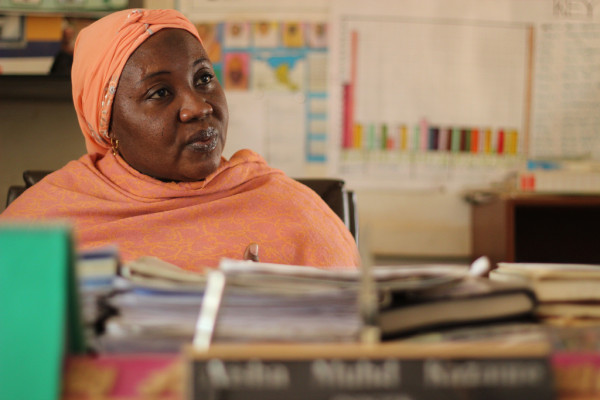[clear][divide]
States must protect universities as spaces where professors and students are safe to teach, learn, and research free from threats to their physical and psychological well being, the Global Coalition to Protect Education from Attack (GCPEA) said in a new report released today.
The 25-page study, Institutional Autonomy and the Protection of Higher Education from Attack, highlights the prevalence of attacks on higher education, which occur across the world and argues that states should be responsible for protecting college students, professors, and university campuses.
“Violent attacks and repression of scholars, students, and higher education institutions severely hinder national and social development and threaten human rights globally,” said Diya Nijhowne, the GCPEA Director. “Unfortunately, such attacks are much too frequent.”
The Global Prevalence of Attacks on Higher Education
Students, academics, and universities often suffer from threats, arrests, and violence in the context of armed conflict and instability. Even in countries not beset by extreme volatility, academics may be subjected to intimidation, detention, injury, and killing. GCPEA’s study shows that attacks on higher education may be politically-motivated, as external political and social conflict and repression invade the classroom. In some cases, state agencies and non-state groups may restrict research, teaching and other activities they disagree with, or institutions they perceive as hostile, by threatening or physically targeting their opponents.
The report examines the violence and intimidation that targets higher education through case studies in Iraq, Pakistan, Tunisia, and Zimbabwe. For example, it describes the conflict in Iraq that, according to an Institute of International Education’s Scholar Rescue Fund (IIE-SRF) report, has resulted in the targeting and killing of more than 550 professors, scientists, and administrators in the past eleven years. GCPEA also reviews the cases of two Pakistani professors killed in relation to the conflict in the country’s Balochistan province; a series of demonstrations protesting a ban on wearing Islamic head coverings, which turned violent and shut down classes at the Tunisian University of Manouba; and the arrests of a professor and student leader at the University of Zimbabwe in response to a lecture and film viewing on the Arab Spring.
Similar patterns of violence occur globally. According to IIE-SRF, the Scholars at Risk Network (SAR), and the Council for Assisting Refugee Academics (CARA), universities and their faculty, staff, and students experienced violence, abuse, and intimidation in nearly 40 countries between January 2009 and February 2013. In Syria, approximately 80 students were killed and close to 200 injured in bombings while they were taking their exams at the University of Aleppo in January, and 12 more students were killed and 20 injured when a bomb hit the cafeteria at the University of Damascus in March. On September 29, 40 Nigerian students died at Yobe State College of Agriculture when armed gunmen, allegedly from the group Boko Haram, stormed their dormitory while they slept.
Attacks on higher education not only cause deaths and injuries, they also result in serious psychological distress for students and professors, which undermines the essential tasks of teaching, learning, and research, and leads to much wider social repercussions.
“Targeting universities, staff, and students, whether by state agencies or by non-state armed groups, goes far beyond the physical damage that may be caused to buildings.” said Nijhowne. “It leads to lost learning, lost skills, lost hope and ultimately lost generations.”
Ensuring University Security and Autonomy
It is essential that governments take more proactive measures to protect universities. In the report, GCPEA outlines two steps that states must take to prevent attacks on university students and faculty:
- Enhance physical security on campus by helping institutions to develop strong and independent security structures, taking action to prevent attacks by others, monitoring attacks, and holding those who perpetrate attacks accountable.
- Preserve the freedom and institutional autonomy of higher education institutions by ensuring that their operations, instruction, and research remain free from interference by third party state and non-state actors. These freedoms safeguard a university and its personnel from accusations of being linked to the agenda of any one particular political, ethnic, or sectarian group.
“Attacks on higher education undermine the system of education as a whole, right down to the primary level. A strong education sector relies upon teachers trained in colleges and research conducted in universities,” said Nijhowne. “Preserving robust higher education by ensuring that universities are both secure and free from political manipulation is essential for the development of stable, well-functioning societies.”
The Global Coalition to Protect Education from Attack (GCPEA) is a unique coalition of international organizations including CARA (Council for Assisting Refugee Academics), Human Rights Watch, the Institute of International Education’s Scholar Rescue Fund, Protect Education in Insecurity and Conflict, Save the Children International, the Scholars at Risk Network, UNHCR, and UNICEF.
Download the report at:
http://protectingeducation.org/sites/default/files/documents/institutional_autonomy_and_protection.pdf
http://protectingeducation.
###
For further information, please contact:
Diya Nijhowne, Director, Global Coalition to Protect Education from Attack: +1-212-377-9413, dnijhowne@protectingeducation.org .






